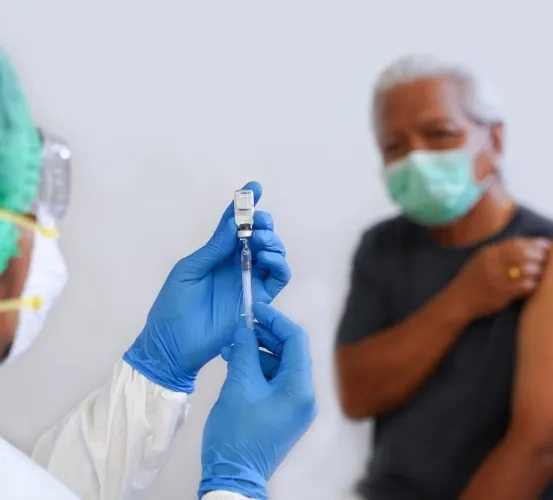
COVID-19, Chronic Adaptation and Response to Exercise (COVID-CARE): A Randomized Controlled Trial COVID-19 Adaptation and Response to Exercise (En español)

Clinical and Genetic Studies in Familial Non-medullary Thyroid Cancer
Thyroid cancer accounts for the vast majority of all types of cancer and little is known about the possible genes that may cause the cancer. An estimated 5% of all thyroid cancers are hereditary. If three or more first-degree relatives are affected, there is a greater than 94% chance that these cases are familial non-medullary thyroid cancer (FNMTC). Researchers at the National Institutes of Health (NIH) are conducting a research study to develop the best ways to evaluate, determine best screening strategy, and identify genes that may indicate vulnerability to FNMTC.

Vaccine Responses in Patients with B Cell Malignancies

Join the Fight Against Lyme Disease!
We are looking for people recently diagnosed with Lyme disease to help us answer important questions about the infection. If you have or had the rash associated with acute Lyme disease (erythema migrans), facial palsy, meningitis, heart block, or arthritis; please consider participating in our study.

Are You Drinking Too Much? Join NIH Research!

The NIH Lyme Disease Studies Unit is looking for healthy volunteers
Each year, the number of cases of tick-borne diseases increases. Researchers at the National Institutes of Health (NIH) Lyme Disease Studies Unit is looking for healthy volunteers to participate in a research study to learn more about how the human immune system responds to tick bites.


